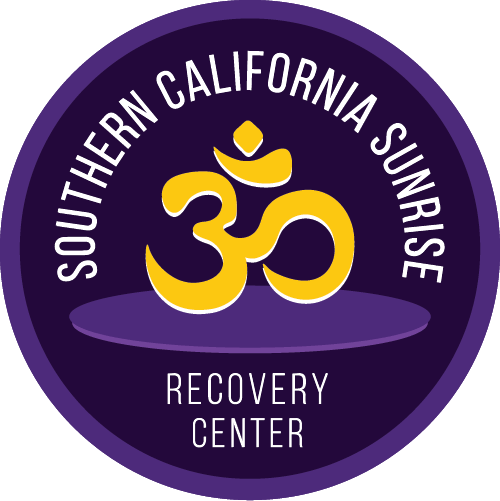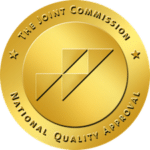Around 15% of Americans face some type of substance abuse. This means whenever you look around the room, 1 out of every 7 people may be battling addiction.
This may come as a shock, but the fact is, many people are functional addicts and don’t realize they have a problem.
Perhaps you or someone you love have come to the realization that you’re not just a party animal. But instead, you have issues with a particular substance. And now, you want to seek help.
If you’re wondering what outpatient addiction treatment is and if it’s right for you or a loved one, then read on. We’ll give you all the information you need to know to make an informed decision.
Outpatient Addiction Treatment
You’ve probably heard of celebrities going in for treatment at rehab centers. In most of these cases, this is inpatient addiction treatment, where they receive round-the-clock supervision for not only detoxing but also recovering and managing their addictions.
Outpatient addiction treatment is similar, but you don’t live at the facility 24/7. While you still get the same services, you’ll still live your normal day-to-day life, but come in for several hours a day to receive treatment and medications.
This is a very viable option for those who come to Southern California Sunrise Recovery Center and need assistance but don’t necessarily need around-the-clock care.
Below, we’ll explain more about what you experience in outpatient addiction treatment.
Detox
The first thing you need to do when breaking out of addiction is detox. However, that’s easier said than done.
Not only is detoxing incredibly difficult (especially if you’ve been addicted to the drug for a long time), but it can also be dangerous in some cases. For example, if you’re a heavy alcoholic, going cold turkey can be seizure-inducing, or even fatal.
When you have professionals by your side for your entire detox process, you’ll be in safe hands. They’ll be able to monitor how you’re doing and prescribe you the proper medications to manage withdrawal symptoms.
Medication Management
Not only can the medical professionals at an outpatient treatment facility prescribe you the right medications, but they can also monitor you every step of the way and adjust them as you go. This ensures you don’t develop a dependency on anything and that you’re progressing in your journey to sobriety effectively.
Therapy
In the majority of cases, addictions are born because people seek an escape from trauma and/or other horrible life experiences. The high from drugs or the effects of alcohol serves to numb them; this causes addicts to use substances as a bandaid for things that bother them.
You can’t fully get clean from substances if you don’t address these root problems. It may be difficult to deal with, but once you do, you’ll find it liberating.
Outpatient addiction treatment provides all sorts of therapy, including group, family, and individual sessions. In all of these therapy sessions, you’ll get to face your demons head-on and learn healthy alternatives to cope with them.
If you were previously undiagnosed when it comes to mental health issues, you may also receive a diagnosis here. As a result, you’ll be prescribed the proper medications so you won’t have to self-medicate anymore.
Inpatient vs Outpatient Rehab: Which One’s Better?
Both inpatient and outpatient addiction treatments have their own pros and cons. Let’s take a look at them in detail.
Pros and Cons of Inpatient Rehab
With inpatient rehab, you’ll get round-the-clock care from professionals who know how to guide you through the whole process. Since you’re be living in the facility 24/7, you’ll be constantly monitored. This means that not only do you get immediate medical treatment if you need it, but you’ll also be somewhere where you can’t access illicit drugs or alcohol.
However, inpatient addiction treatment can be very expensive since you’re there for a long period of time and essentially live there. Also, because of this, your personal life suffers a huge interruption. For some people, this simply isn’t doable, nor is it affordable.
Pros and Cons of Outpatient Rehab
Outpatient rehab allows you to receive the same kind of care as in inpatient rehab, but without such huge disruptions in your life. It’s also a lot more affordable.
However, depending on what type of home environment you have and what circles you hang out with, you may have a lower chance of staying sober when choosing outpatient rehab over inpatient. If you’re associating with other addicts while in recovery, you may be tempted to relapse since you have easy access to your drugs of choice.
But if you have a good home life and can stay away from your old social circles, outpatient addiction treatment can be a superb alternative to inpatient treatment.
Consider Getting Into Outpatient Addiction Treatment
If you or a loved one is struggling with some sort of addiction, you don’t have to go through it alone. While inpatient addiction treatment sounds great, not everyone can afford to do it; they may have money issues or responsibilities they can’t walk away from.
If you’re such a person, you don’t have to worry. There are plenty of outpatient addiction treatments available that can hugely beneficial to helping you get on the road to recovery, all without taking too much time away from work, school, or other obligations you may have.
So if you’re ready to get sober, or you want to help a friend or family member become sober, consider the expertise of SoCal Sunrise Recovery Center. Our clinicians are extremely trained and knowledgeable in all types of substance abuse.
Do you feel like you or someone you love could benefit from outpatient addiction treatment? If so, then get in touch with us for a free treatment consultation today. We’ll help you determine the best course of action, even if it’s a treatment referral.
If you or a loved one is suffering from drug or alcohol addiction, help is available to you.
Contact Southern California Sunrise Recovery Center Today.





